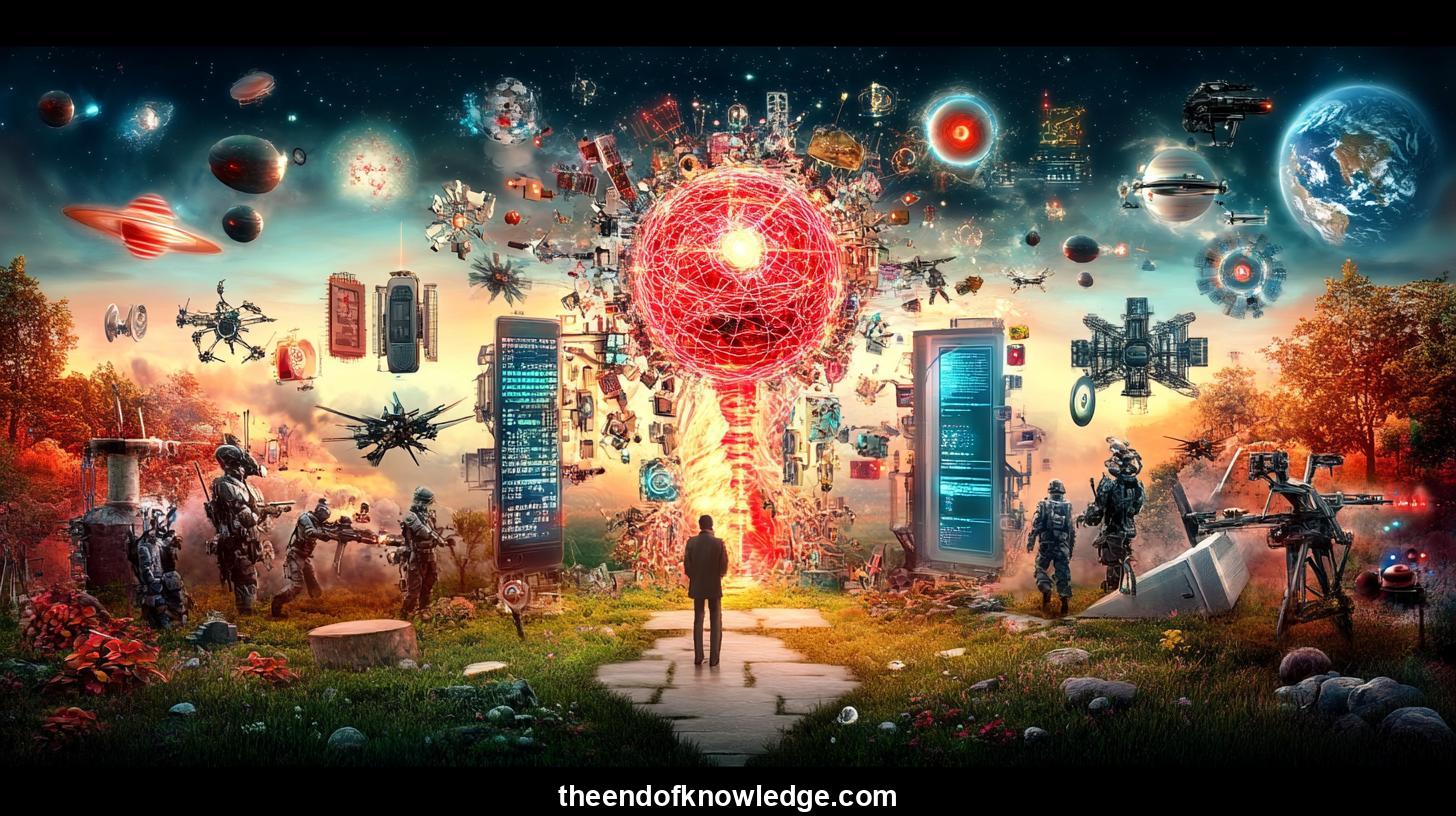 >
>
Concept Graph, Resume & KeyIdeas using DeepSeek R1 :
Resume:
The discussion revolves around the impact of artificial intelligence (AI) on modern warfare and military strategy. Jorge, Mario, and Juan explore how AI is transforming defense systems, cybersecurity, and the future of warfare. They highlight the dual role of AI in enhancing military capabilities while raising ethical concerns, such as the potential for autonomous weapons and the psychological effects on operators. The conversation also touches on the role of private companies in developing military technologies and the need for ethical frameworks to govern AI use in defense. The speakers emphasize the importance of human responsibility in decision-making processes involving AI and the need for international cooperation to address the challenges posed by emerging technologies. The discussion concludes with reflections on the future of warfare and the importance of maintaining ethical standards in the face of rapid technological advancements.30 Key Ideas:
1.- AI integration into military systems enhances decision-making and operational efficiency.
2.- Autonomous weapons systems raise ethical dilemmas about accountability and human responsibility.
3.- Cybersecurity is a critical concern as AI systems can be vulnerable to attacks.
4.- Private companies play a crucial role in developing military AI technologies.
5.- Ethical frameworks are essential to govern the use of AI in warfare.
6.- AI enables real-time data analysis, improving situational awareness for military operations.
7.- The use of drones in warfare is a significant application of AI.
8.- AI can analyze vast amounts of data, aiding in predictive analytics for military strategies.
9.- The psychological impact of AI on military personnel is a growing concern.
10.- International cooperation is needed to regulate AI in warfare.
11.- AI systems can be used for both defensive and offensive military operations.
12.- The development of AI in military contexts raises questions about transparency and accountability.
13.- AI-powered surveillance systems enhance border security and intelligence gathering.
14.- The ethical implications of AI in warfare must be addressed to prevent misuse.
15.- AI can improve logistics and resource management in military operations.
16.- The use of AI in warfare challenges traditional notions of combat and strategy.
17.- AI systems require robust safeguards to prevent unauthorized access or manipulation.
18.- The integration of AI into military systems necessitates a balanced approach between technology and human oversight.
19.- AI can facilitate faster and more accurate targeting in military operations.
20.- The ethical use of AI in warfare is a critical issue for global security.
21.- AI systems can be used to simulate military scenarios, aiding in training and strategy development.
22.- The reliance on AI in warfare increases the risk of technological vulnerabilities.
23.- AI can enhance the effectiveness of cybersecurity measures in military contexts.
24.- The development of AI in military applications requires significant investment in research and development.
25.- AI systems must be designed with ethical considerations to ensure responsible use in warfare.
26.- The use of AI in military operations raises questions about the future of human soldiers.
27.- AI can improve the accuracy of intelligence gathering and analysis in military contexts.
28.- The ethical implications of AI in warfare must be addressed through international agreements.
29.- AI systems can be used to monitor and respond to cyber threats in real-time.
30.- The integration of AI into military systems requires a focus on both technological advancement and ethical responsibility.
Interviews by Plácido Doménech Espí & Guests - Knowledge Vault built byDavid Vivancos 2025